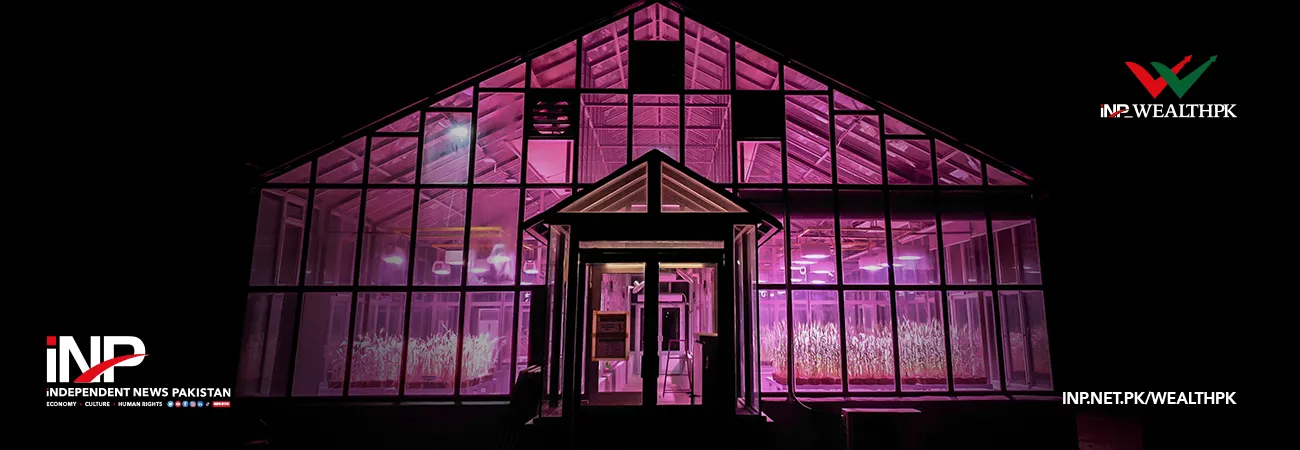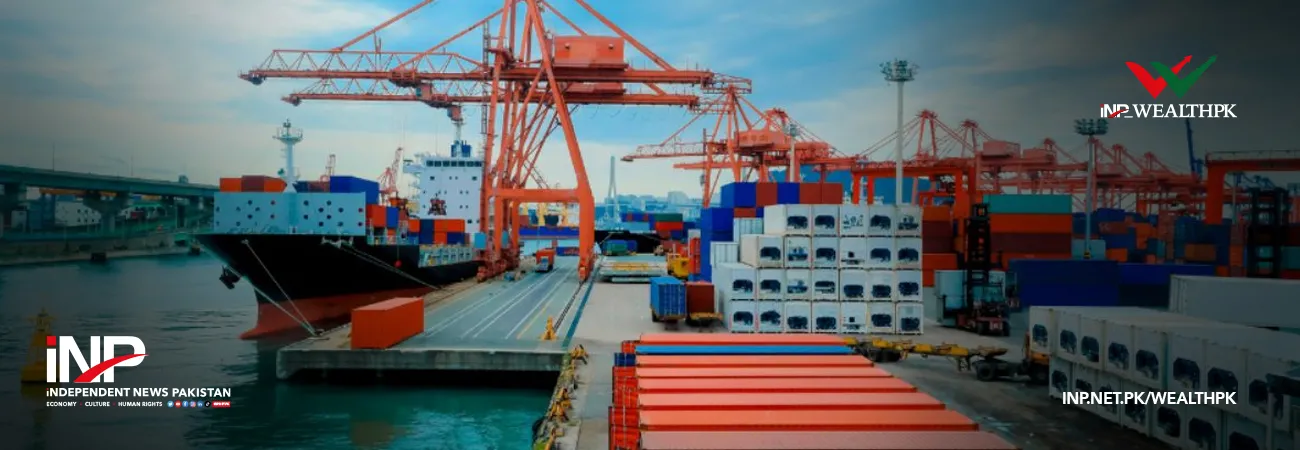INP-WealthPk
 By Qudsia Bano
ISLAMABAD, Feb 17 (INP-WealthPK): Pakistan's processed food industry has seen a significant transformation in recent years, ensuring greater value-addition.
As the country has a solid agricultural base, the business of processed food items has a lot of room to grow. However, the industry needs a level-playing field in order to realise its full potential.
According to a recent research, the global processed food market will be worth $7,036.14 billion in 2026, up from $6,088.07 billion in 2020. The global processed food market will develop at a compound annual growth rate (CAGR) of 3.7% over the following five years. During the forecast period, the Pakistani frozen food market is expected to rise at a CAGR of 5.8% (2020-2025).
The market for processed foods has increased considerably in recent years as people have adapted to a more urban way of life. In 2021, the food market generated over $89 billion in revenue.
After textiles, the food and beverage processing industry in Pakistan is the second largest, accounting for 27% of value-added production and 16% of manufacturing employment. From 2012 to 2018, food processing attracted an annual average of $223.5 million in foreign direct investment. In 2014, the European Union granted Pakistan the Generalised Scheme of Preferences (GSP-Plus) status -- which means zero to low duty on exports of goods -- boosting the country’s exports of processed food significantly.
The province of Punjab makes for 60% food production units of the almost 2,500 plants across Pakistan, followed by Sindh (30%), Khyber Pakhtunkhwa (6%), Balochistan (2%), and Islamabad Capital Territory (2%).
The country’s agriculture sector is predicted to grow at a slower rate of 2.2% in financial year 2021-22, down from 3.3% in FY2020-21. Livestock, which accounts for over 60% of the sector, was the key driver of the sector’s growth in FY21.
By Qudsia Bano
ISLAMABAD, Feb 17 (INP-WealthPK): Pakistan's processed food industry has seen a significant transformation in recent years, ensuring greater value-addition.
As the country has a solid agricultural base, the business of processed food items has a lot of room to grow. However, the industry needs a level-playing field in order to realise its full potential.
According to a recent research, the global processed food market will be worth $7,036.14 billion in 2026, up from $6,088.07 billion in 2020. The global processed food market will develop at a compound annual growth rate (CAGR) of 3.7% over the following five years. During the forecast period, the Pakistani frozen food market is expected to rise at a CAGR of 5.8% (2020-2025).
The market for processed foods has increased considerably in recent years as people have adapted to a more urban way of life. In 2021, the food market generated over $89 billion in revenue.
After textiles, the food and beverage processing industry in Pakistan is the second largest, accounting for 27% of value-added production and 16% of manufacturing employment. From 2012 to 2018, food processing attracted an annual average of $223.5 million in foreign direct investment. In 2014, the European Union granted Pakistan the Generalised Scheme of Preferences (GSP-Plus) status -- which means zero to low duty on exports of goods -- boosting the country’s exports of processed food significantly.
The province of Punjab makes for 60% food production units of the almost 2,500 plants across Pakistan, followed by Sindh (30%), Khyber Pakhtunkhwa (6%), Balochistan (2%), and Islamabad Capital Territory (2%).
The country’s agriculture sector is predicted to grow at a slower rate of 2.2% in financial year 2021-22, down from 3.3% in FY2020-21. Livestock, which accounts for over 60% of the sector, was the key driver of the sector’s growth in FY21.
 The convenience aspect and increased demand for processed food such as kebabs, parathas, meatballs, sausages are driving the frozen food market in Pakistan. Due to a slew of fundamental causes such as expanding urbanisation, time-pressed schedules, and women entering the workforce, there is a strong demand for processed food in Pakistan.
Individual quick-frozen vegetables and livestock are an important segment in the global food processing market, and Pakistan produces a wide range of high-quality vegetables and meat with enormous processing possibilities. Peas, potatoes, carrots, spinach, bitter gourd, okra, and mango are among the items selected for individual rapid freezing. These vegetables, fruits and meat are readily available for the production of value-added frozen goods. Though the majority of fresh vegetables and fruits are consumed in the local market, there is significant export potential for them.
Meanwhile, the processed food business in Pakistan has significant challenges due to a lack of infrastructure, particularly in terms of efficient cold chain and retail-level inefficiencies. However, to cope with the barriers in the processed food industry, the government has taken certain steps. The Agriculture Transformation Plan targets economic and social liberation for farmers by achieving food self-sufficiency and poverty eradication.
Jamshed Iqbal Cheema, Special Assistant to the Prime Minister for Food Security, said under the initiative the federal government will provide loans to youngsters for food processing in order to meet the country's food demands. The prime minister's plan to transform Pakistan from an agricultural to a food-sufficient country is divided into three segments. The first segment focuses on water conservation, the second on expanding agricultural land, and the third on increasing fruit and vegetable production, he explained.
As we are entering a phase with CPEC where a large number of multinational businesses from various industrial sectors are likely to show interest in investing in Pakistan, there are compelling reasons for us to encourage foreign investment in agriculture, food processing and packaging, PM’s aide noted.
The convenience aspect and increased demand for processed food such as kebabs, parathas, meatballs, sausages are driving the frozen food market in Pakistan. Due to a slew of fundamental causes such as expanding urbanisation, time-pressed schedules, and women entering the workforce, there is a strong demand for processed food in Pakistan.
Individual quick-frozen vegetables and livestock are an important segment in the global food processing market, and Pakistan produces a wide range of high-quality vegetables and meat with enormous processing possibilities. Peas, potatoes, carrots, spinach, bitter gourd, okra, and mango are among the items selected for individual rapid freezing. These vegetables, fruits and meat are readily available for the production of value-added frozen goods. Though the majority of fresh vegetables and fruits are consumed in the local market, there is significant export potential for them.
Meanwhile, the processed food business in Pakistan has significant challenges due to a lack of infrastructure, particularly in terms of efficient cold chain and retail-level inefficiencies. However, to cope with the barriers in the processed food industry, the government has taken certain steps. The Agriculture Transformation Plan targets economic and social liberation for farmers by achieving food self-sufficiency and poverty eradication.
Jamshed Iqbal Cheema, Special Assistant to the Prime Minister for Food Security, said under the initiative the federal government will provide loans to youngsters for food processing in order to meet the country's food demands. The prime minister's plan to transform Pakistan from an agricultural to a food-sufficient country is divided into three segments. The first segment focuses on water conservation, the second on expanding agricultural land, and the third on increasing fruit and vegetable production, he explained.
As we are entering a phase with CPEC where a large number of multinational businesses from various industrial sectors are likely to show interest in investing in Pakistan, there are compelling reasons for us to encourage foreign investment in agriculture, food processing and packaging, PM’s aide noted.













